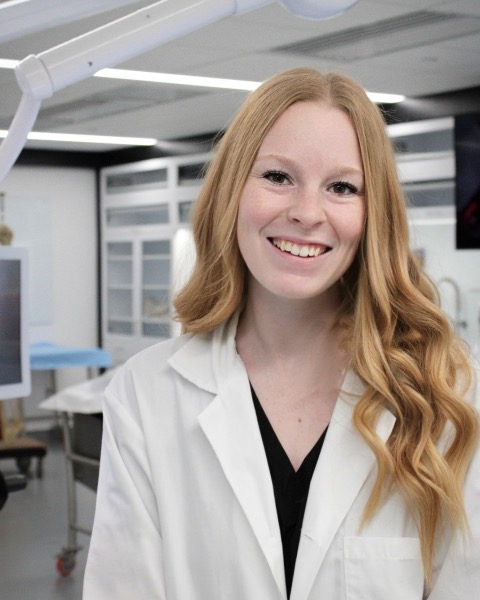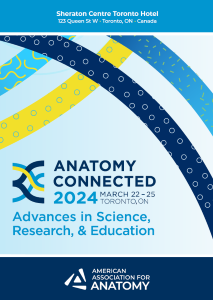Back
Anatomy Education: Undergraduate Education Posters
Poster: Anatomy Education: Undergraduate Education Posters
163 - Evaluation of Musculoskeletal Learning and Knowledge Retention Among Postgraduate Physicians – a Preliminary Report
Sunday, March 24, 2024
5:00pm – 7:00pm US EDT
Location: Sheraton Hall
Poster Board Number: 163
There are separate poster presentation times for odd and even posters.
Odd poster #s – first hour
Even poster #s – second hour
Co-authors:
There are separate poster presentation times for odd and even posters.
Odd poster #s – first hour
Even poster #s – second hour
Co-authors:
Alexa Hryniuk, PhD - Assistant Professor, Max Rady College of Medicine, University of Manitoba; Jason Peeler, PhD - Associate Professor, Max Rady College of Medicine, University of Manitoba

Taylor Orchard, BSc
Graduate Student - PhD
University of Manitoba
Winnipeg, Manitoba, Canada
Presenting Author(s)
Abstract Body : Introduction/Objective: Musculoskeletal (MSK) injuries/disorders are among the most common medical conditions treated by a physician. Despite this, previous research suggests that physician training in the MSK medicine displays a high degree of variability across AFMC-accredited medical programs. As such, no gold standard exists for MSK curricula in Canada, and the impact of preclinical MSK training on postgraduate physician MSK learning and knowledge retention remains unknown. The goal of this investigation was to examine MSK learning and knowledge retention among postgraduate physicians from an AFMC-accredited medical program. Materials/Methods: A local AFMC accredited medical program implemented a new preclinical MSK curriculum in 2015 that included 109 hours of MSK instruction (32 hours of MSK anatomy; 68 hours of instruction on “core or must know” topics in MSK medicine; 11 hours of MSK clinical skills). Five hundred and sixty-eight postgraduate physicians from the program’s classes of 2018 – 2023 were contacted and asked to complete a standardized and recently validated MSK competency exam that consisted of 30 multiple-choice questions on topics in MSK medicine that all physicians should be familiar with. Each question included knowledge and concepts that could be directly mapped to both course and session specific learning objectives of the program’s new preclinical MSK curriculum. Results: To date, 65 responses have been received from postgraduate physicians and demographically, participants represent a heterogeneous group of individuals similar to that reported in the most recent AFMC data report. The average test score among respondents was 76.1% (± 10.68%; range 57%-100%). No significant differences were noted in test scores when data was organized by gender, year of graduation, or previous academic performance in medical school. Physicians who specialized in fields related to MSK medicine (i.e. Orthopaedics, PM&R, Sport Medicine, Rheumatology), or who participated in MSK-related electives during clerkship training performed significantly better (P ≤ 0.01) on the MSK exam. Conclusion: Preliminary data suggest that the medical program’s new preclinical curriculum supports high levels of MSK learning and knowledge retention among postgraduate physicians. Significance/Implication: The results represent an important step towards the establishment of minimum curricular standards in the area of MSK medicine among AFMC-accredited medical programs, and provide medical educators/program directors with a model of enquiry that could be used to address curricular inadequacies in other programs. Future research should examine MSK learning and knowledge retention among postgraduate physicians from multiple AFMC accredited medical programs.

